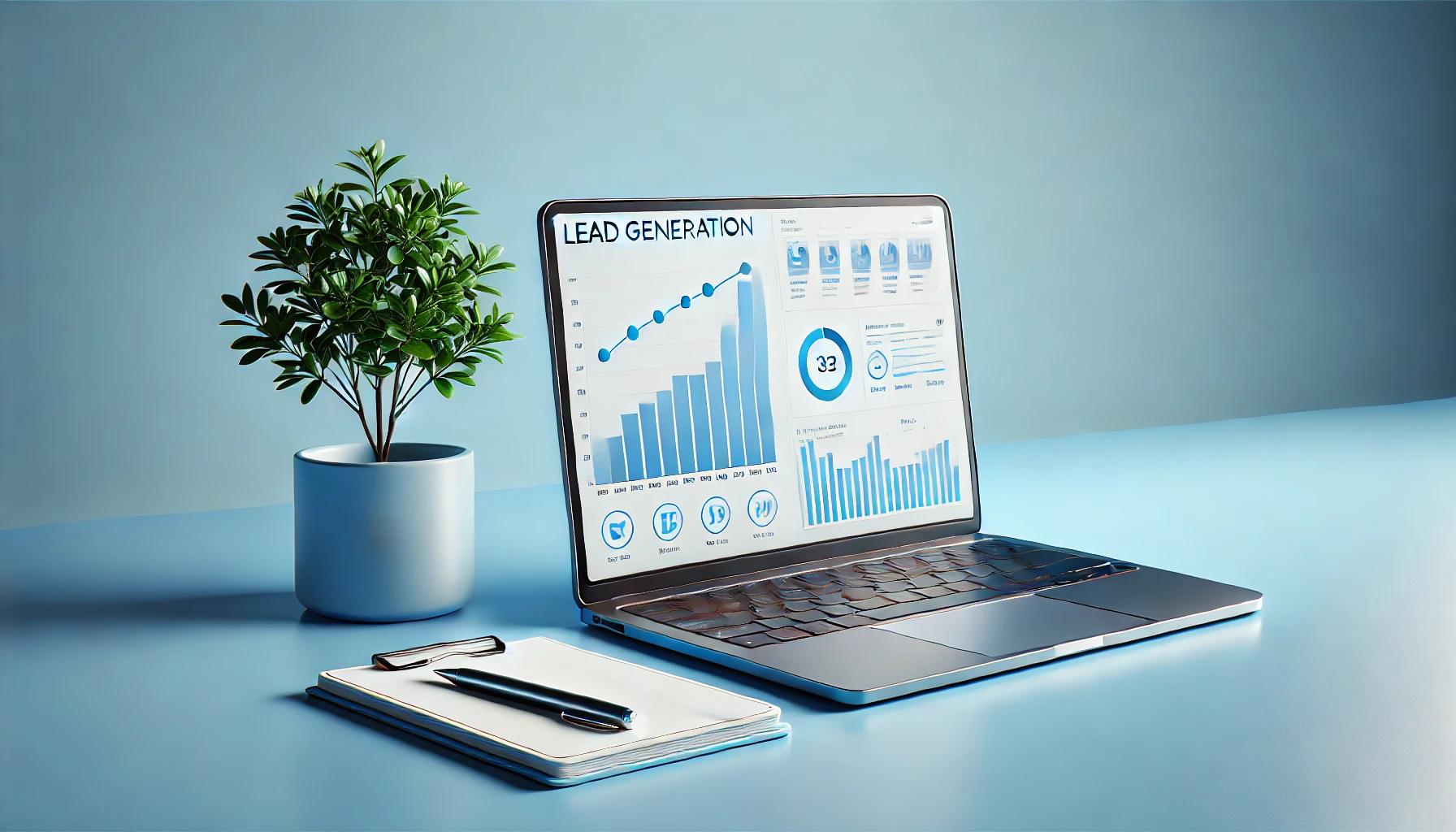In 2025, the real estate industry continues to evolve alongside rapid technological advancements. For estate agents, staying competitive requires embracing innovative digital marketing strategies tailored to changing consumer behavior and leveraging cutting-edge tools. From website design to social media, search engine optimization (SEO), and advanced analytics, this article explores comprehensive strategies to thrive in 2025’s dynamic digital landscape.
1. The Importance of Digital Marketing for Estate Agents
In today’s technology-driven world, digital marketing has become an essential component of success for estate agents. The real estate industry has undergone a significant shift, with buyers and sellers relying on online platforms to find properties, compare options, and make decisions. Whether it’s browsing property listings, taking virtual tours, or reading reviews about agents and agencies, the online space has become a critical part of the real estate journey.
Estate agents who fail to embrace digital marketing risk being left behind in a competitive market. On the other hand, those who adapt and invest in the right strategies can expand their reach, attract high-quality leads, and build trust with their audience. Here’s why digital marketing is no longer optional and the key benefits it offers:
Enhanced Reach
Digital marketing allows estate agents to expand their visibility far beyond traditional geographical boundaries.
- Local Reach: Optimize your presence for local search results so clients in your area can find you easily when searching for “estate agents near me” or “homes for sale in [location].”
- National and Global Reach: With digital platforms like Google Ads, social media, and international property listing sites, estate agents can attract buyers and investors from across the country or even abroad.
- Multi-Channel Exposure: By leveraging multiple channels such as websites, email campaigns, and social media, estate agents ensure they are visible wherever potential clients are searching.
Better Targeting
One of the most significant advantages of digital marketing is its ability to target specific audiences effectively. Unlike traditional methods like newspaper ads or billboards, digital tools enable estate agents to:
- Define Their Audience: Use detailed demographics such as age, income, location, and preferences to reach the right buyers or sellers.
- Personalize Campaigns: Tailor marketing efforts to specific groups, such as first-time buyers, luxury property seekers, or commercial real estate investors.
- Retarget Interested Leads: Re-engage users who have visited your website or interacted with your ads but didn’t convert, keeping your brand top of mind.
Cost Efficiency
Compared to traditional advertising methods, digital marketing is more affordable and offers a higher return on investment (ROI).
- Lower Upfront Costs: Running a social media ad campaign or Google PPC campaign costs significantly less than producing and distributing print ads or TV commercials.
- Pay-for-Performance Models: With PPC campaigns, estate agents only pay when someone clicks on their ad, ensuring every dollar spent is impactful.
- Efficient Budgeting: Digital marketing tools provide insights into which strategies are working, allowing agents to allocate budgets to the most effective channels.
Measurable Results
One of the standout features of digital marketing is its measurability. Estate agents can track the performance of every campaign, gaining valuable insights to improve their strategies.
- Analytics Tools: Platforms like Google Analytics, Facebook Insights, and email marketing dashboards provide detailed metrics on traffic, engagement, and conversions.
- Real-Time Monitoring: Unlike traditional marketing, digital campaigns can be monitored in real-time, allowing for quick adjustments to improve performance.
- ROI Tracking: Understand exactly how your marketing budget translates into leads and sales, ensuring resources are spent wisely.
Additional Benefits of Digital Marketing
- Improved Customer Experience: Digital marketing enables estate agents to create a seamless and engaging experience for their clients, from property searches to inquiry responses.
- Brand Credibility: A strong online presence, supported by professional website design, positive reviews, and high-quality content, builds trust with potential clients.
- Competitive Edge: In a crowded market, digital marketing helps estate agents stand out by showcasing unique selling points, success stories, and client testimonials.
Digital marketing is a game-changer for estate agents, providing the tools and strategies necessary to adapt to evolving buyer and seller behavior. By leveraging enhanced reach, targeted campaigns, cost-effective methods, and data-driven insights, estate agents can not only remain relevant but thrive in an increasingly digital real estate landscape.
In 2025 and beyond, the importance of digital marketing will only grow, making it a critical investment for any estate agent looking to achieve sustained success
2. Essential Digital Marketing Services for Estate Agents in 2025
- Website Designing and Development
A professional, responsive, and visually appealing website is foundational for estate agents. It acts as the hub of your online presence, hosting property listings, contact information, and valuable resources.- Key Features for 2025:
- AI-Powered Search: Allow users to find properties based on personalized preferences.
- Mobile Optimization: Ensure seamless browsing on smartphones and tablets.
- Virtual Tours: Integrate 360-degree virtual property tours and augmented reality (AR) walkthroughs.
- Fast Loading Speed: Optimize site performance to avoid losing potential leads due to slow loading times.
- Content to Include:
- Blogs, market trends, and buyer/seller guides.
- Client testimonials to build trust.
- Clear calls-to-action (CTAs) for inquiries or appointments.
- Key Features for 2025:
- Search Engine Optimization (SEO)
Ranking high on search engines ensures potential clients find your website first.- Strategies for 2025:
- Local SEO: Optimize for location-based keywords (e.g., “estate agents in [city]”).
- Voice Search Optimization: Optimize content for voice-activated queries like “Find homes for sale near me.”
- Core Web Vitals: Prioritize Google’s performance metrics like page load speed, interactivity, and visual stability.
- Content Marketing: Publish blogs, guides, and video content targeting frequently asked questions.
- Strategies for 2025:
- Social Media Marketing
Social media platforms are indispensable for building brand awareness and engaging with your audience.- Platforms to Focus On:
- Instagram: Share visually engaging property images and videos.
- Facebook: Use groups and paid ads to target local audiences.
- LinkedIn: Network with industry professionals and share market insights.
- TikTok: Leverage short-form videos to showcase properties or real estate tips creatively.
- Content Ideas for 2025:
- Behind-the-scenes property prep videos.
- Market trends explained through reels.
- Client success stories.
- Platforms to Focus On:
- Pay-Per-Click (PPC) Advertising
PPC ads on platforms like Google Ads and Facebook provide quick visibility for specific campaigns.- Effective Ad Types:
- Google Search Ads: Target property-related keywords.
- Display Ads: Showcase properties with eye-catching visuals.
- Retargeting Campaigns: Re-engage users who visited your site but didn’t convert.
- Effective Ad Types:
- Email Marketing
Stay connected with your audience through personalized and timely emails.- 2025 Trends in Email Marketing:
- Automation: Use tools to send tailored follow-ups based on user behavior.
- Interactive Emails: Include clickable property previews or scheduling links.
- Segmentation: Group your audience by preferences, location, or buying stage for better targeting.
- 2025 Trends in Email Marketing:
- Video Marketing
Video content remains one of the most effective ways to showcase properties and establish trust.- Types of Video Content:
- Virtual property tours and neighborhood walkthroughs.
- Agent introductions to build personal connections.
- Educational videos covering buying and selling tips.
- Types of Video Content:
- Content Marketing
High-quality content positions you as a trusted authority in the real estate industry.- Content Ideas:
- Blog Topics: “Top 10 Neighborhoods for First-Time Buyers in [City]” or “How to Stage Your Home for a Quick Sale.”
- Guides: Step-by-step eBooks on the buying/selling process.
- Infographics: Visual representations of market trends or home-buying checklists.
- Content Ideas:
- Online Reputation Management (ORM)
Building and maintaining a positive online reputation is critical in real estate.- Strategies:
- Encourage satisfied clients to leave reviews on Google, Zillow, or Yelp.
- Respond promptly and professionally to feedback.
- Monitor your online presence for mentions and reviews.
- Strategies:
- Chatbots and AI-Powered Support
In 2025, chatbots powered by AI will play a pivotal role in improving customer experience.- Benefits:
- Offer 24/7 support to answer common inquiries.
- Schedule property viewings or consultations automatically.
- Provide tailored property recommendations based on user preferences.
- Benefits:
- Analytics and Data-Driven Marketing
Tracking and analyzing data helps refine strategies for better performance.
- Key Metrics to Monitor:
- Website traffic and bounce rate.
- Conversion rates for property inquiries.
- Social media engagement and ad ROI.
- Email open and click-through rates.
3. Emerging Technologies Shaping Digital Marketing for Estate Agents in 2025
- Artificial Intelligence (AI) and Machine Learning:
AI algorithms analyze user behavior to deliver personalized experiences and improve targeting. - Augmented Reality (AR) and Virtual Reality (VR):
Allow potential buyers to “walk through” properties virtually, eliminating geographical barriers. - Blockchain Technology:
Enhances transparency in real estate transactions and facilitates secure online payments. - 5G Connectivity:
Faster internet speeds enable seamless video streaming and virtual tours.
4. Developing a Winning Digital Marketing Strategy
In 2025, the real estate industry is expected to continue its rapid digital transformation, making it more essential than ever for estate agents to develop a cohesive, data-driven digital marketing strategy. To successfully navigate this evolving landscape, estate agents must integrate various digital marketing services into a comprehensive approach that not only attracts leads but also nurtures long-term client relationships. A well-structured digital marketing strategy can drive more conversions, improve brand recognition, and establish a competitive edge in an increasingly crowded market.
Here’s a breakdown of the key steps to developing a winning digital marketing strategy for estate agents in 2025:
1. Define Your Goals
Before diving into the specifics of digital marketing services, it’s crucial for estate agents to clearly define their goals. Having a well-established focus ensures that all efforts are directed towards measurable outcomes that align with the business’s objectives.
- Lead Generation: If your primary goal is to attract new buyers or sellers, your marketing efforts should focus on creating compelling lead magnets such as property guides, newsletters, and educational content that encourage users to engage with your brand.
- Brand Awareness: If you’re looking to make your agency well-known in a specific region or niche, you should focus on strategies like social media marketing, influencer partnerships, and local SEO to increase visibility and recognition.
- Customer Retention: Maintaining long-term relationships with clients is essential in the real estate industry, where repeat business and referrals are vital. For retention, your digital strategy should focus on creating valuable post-sale content, email newsletters with market updates, and providing exceptional customer service through online channels.
Setting clear goals helps estate agents allocate resources more efficiently, track success, and measure the impact of each digital marketing activity.
2. Know Your Audience
One of the key advantages of digital marketing is the ability to gather and analyze data about your audience, which allows you to create highly-targeted and personalized campaigns. Understanding who your ideal clients are enables you to tailor your content, messaging, and overall approach to resonate with them on a deeper level.
- Buyer Personas: Buyer personas are semi-fictional representations of your ideal clients based on demographic data, behaviors, motivations, and pain points. For example, you might create personas for first-time homebuyers, luxury property seekers, or commercial real estate investors.
- Use Data-Driven Insights: Tools like Google Analytics, social media insights, and CRM systems allow you to track how different audience segments are interacting with your content. With this data, you can refine your marketing strategies, identify the most profitable audience segments, and predict future trends.
- Segmenting Your Audience: Instead of targeting your entire market with one-size-fits-all campaigns, segment your audience into specific groups based on criteria like location, income level, property interests, or stage in the buying process. This enables more relevant communication and increases the likelihood of conversions.
By knowing your audience inside and out, you can create content that speaks to their specific needs, concerns, and desires, ultimately leading to higher engagement and more successful outcomes.
3. Allocate Resources
Once your goals are set and you have a clear understanding of your target audience, the next step is to allocate your resources effectively. Real estate digital marketing involves a combination of various tools, platforms, and services, so understanding where to invest is key.
- Invest in the Right Tools:
To succeed in digital marketing, you’ll need the right set of tools to manage, track, and optimize your campaigns. For example:- Website Analytics: Use tools like Google Analytics to track your website’s performance and identify areas for improvement.
- Email Marketing Platforms: Services like Mailchimp or HubSpot help automate email campaigns and segment your audience.
- Social Media Management Tools: Tools like Buffer or Hootsuite can streamline the scheduling and tracking of social media posts.
- Customer Relationship Management (CRM) Systems: A CRM like Salesforce or Zoho allows you to track client interactions, manage leads, and nurture relationships effectively.
- Choose the Right Marketing Channels: Not all digital channels will be suitable for every real estate business. Based on your goals and audience, determine which platforms are best for your marketing efforts:
- Google Ads: Ideal for lead generation campaigns targeting specific search terms.
- Facebook and Instagram Ads: Great for increasing brand awareness and reaching local buyers.
- SEO (Search Engine Optimization): For long-term growth in organic search results, SEO is crucial for driving targeted traffic to your website.
- Video Marketing Platforms (YouTube, TikTok): Use these platforms for showcasing property tours and sharing industry insights to attract new buyers.
- Allocate Budget Wisely: In digital marketing, it’s easy to spread yourself too thin across many channels, but it’s crucial to allocate your budget based on which channels provide the best ROI. Consider spending more on high-performing platforms while testing new methods or experimenting with emerging channels in smaller amounts.
4. Measure and Optimize
A successful digital marketing strategy doesn’t end once campaigns are launched. Estate agents must constantly monitor, measure, and optimize their efforts to ensure they are driving the best possible results.
- Track Performance Metrics: Regularly track key performance indicators (KPIs) such as:
- Website Traffic: Monitor how much organic or paid traffic your website is receiving and whether it’s converting into leads.
- Lead Generation: Track the number of inquiries, downloads, or sign-ups that result from your campaigns.
- Social Media Engagement: Measure likes, shares, comments, and click-through rates to understand how well your social media posts are performing.
- Conversion Rates: Analyze how many visitors are taking the desired actions (e.g., filling out a contact form, requesting a viewing, or completing a purchase).
- Refine Your Campaigns: Use insights from these performance metrics to fine-tune your campaigns. This can involve adjusting your targeting, changing messaging, or increasing your budget for high-performing ads. If a particular strategy isn’t working, don’t be afraid to pivot and try new approaches. For instance, if Facebook ads aren’t yielding the desired results, you might focus more on Instagram or experiment with Google Ads.
- A/B Testing: A/B testing involves comparing two versions of a marketing asset (such as an email subject line, ad copy, or landing page) to see which one performs better. Constantly testing and optimizing can lead to incremental improvements that make a significant difference in the long run.
Developing a winning digital marketing strategy in 2025 requires careful planning, data-driven decisions, and continuous optimization. By defining clear goals, understanding your audience, allocating resources effectively, and measuring performance, estate agents can ensure their marketing efforts are aligned with their business objectives.
Incorporating all digital marketing services—website design, SEO, content creation, social media marketing, PPC, and more—into one cohesive strategy enables estate agents to build a strong online presence, generate valuable leads, and stay ahead in a competitive real estate market. The digital landscape is continuously evolving, so staying flexible, adapting to new technologies, and refining your approach will be key to ongoing success in the years to come.
5. Conclusion
Digital marketing in 2025 will continue to transform the way estate agents connect with buyers and sellers. By leveraging advanced technologies, maintaining a robust online presence, and providing personalized experiences, estate agents can stay ahead of the competition. Whether it’s through an expertly designed website, targeted social media campaigns, or cutting-edge tools like AI and AR, embracing these strategies ensures long-term success in the evolving real estate market.
Adapting to the times is not just about survival—it’s about thriving in an ever-changing digital world. As the real estate landscape shifts, staying innovative and customer-focused will be the key to achieving unparalleled growth in 2025 and beyond





